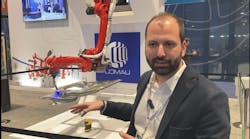The U.S. Democratic presidential candidate radio debate, held in Iowa and broadcast by National Public Radio, sparked little in the way of controversy, but it did manage to draw new attention to an all-but-forgotten subject"”the H-1B visa"”and the state of the world engineering job market.
The H-1B visa limit was slashed to 65,000 in 2004 and quietly receded out of the public spotlight until the Grassley-Sanders amendment recently attempted to more than triple the fee to corporations for the visa and funnel that money to higher STEM education.
The amendment, of course, was scrapped, but it brings us back to that salient issue of where the next wave or generation of engineers will come from and reminds us that they may not come from the United States.
"Why is
Certainly, abuses of H-1B visas occur by some companies who allegedly pay H-1B visa employees less or profit by subcontracting them out, but that type of exploitation is against the law and not what we're talking about here.
While the surface discussion is about protecting jobs in the
Illinois Senator and Democratic presidential hopeful Barack Obama has made it very clear in the past that his goal is not protecting American jobs, but developing American business. "We have a skills shortage, not a worker shortage. There are plenty of Americans who could be filling tech jobs given the proper training. Until we have achieved that, I will support a temporary increase in the H-1B visa program as a stopgap measure to attract some of the world's most talented people to
Obama's aim is true, and his long-term intentions to infuse the underrepresented minorities of the United States with those skills are admirable, but it demonstrates just how far behind the American work force may have fallen. At Control Design, we have discussed and will continue to discuss the many programs and organizations that are developing new engineers. But the mere discussion of a stopgap measure to buoy companies until new educational and training initiatives can be brought to fruition indicates it may simply be time to stop protecting American jobs and start embracing the global nature of the knowledge pool.




